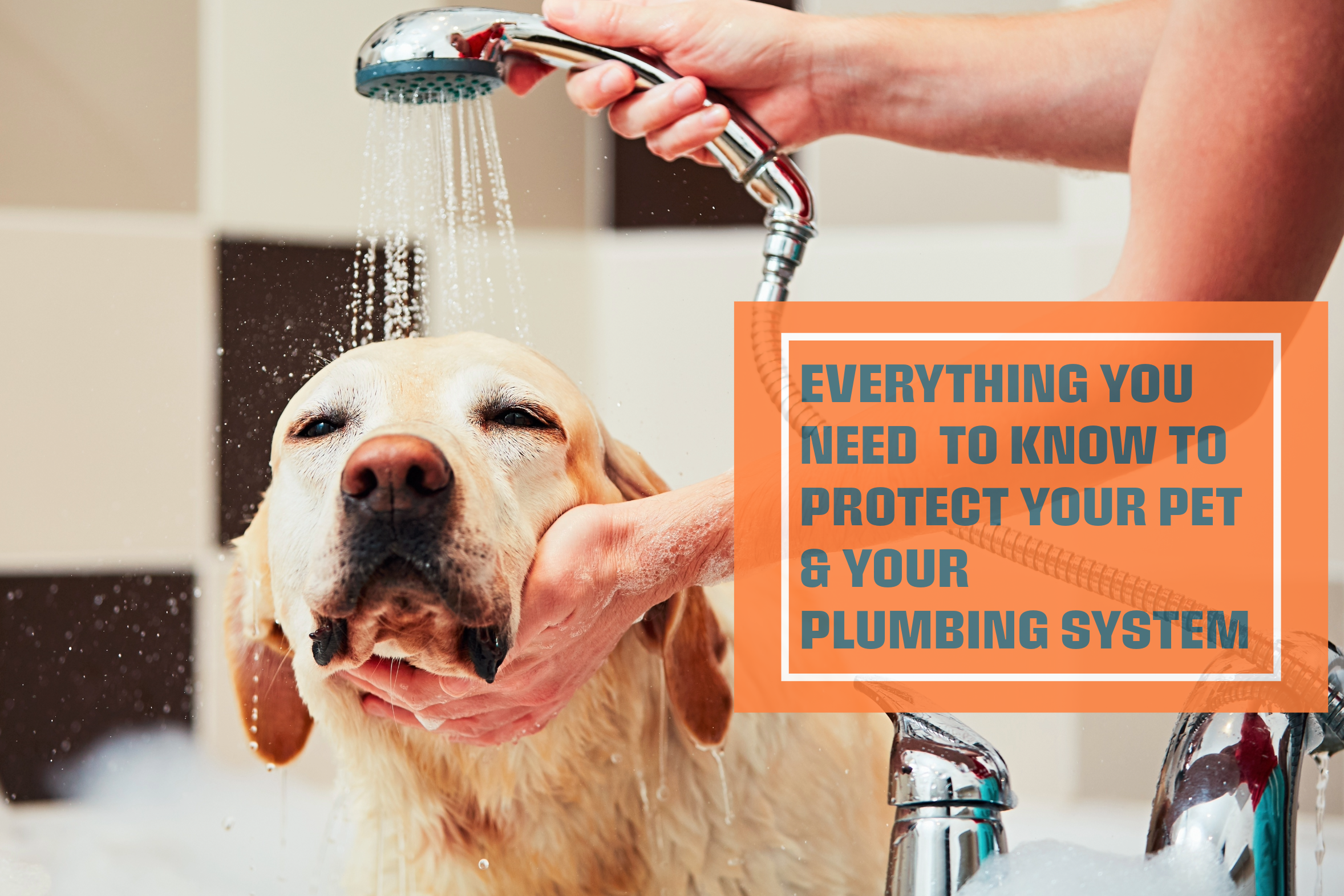It’s National Pet Month! Of course, our pets are like family, and they are key members in completing our households. As a pet owner, you are familiar with all the responsibilities that having a pet entails. Whether you have a low-maintenance or high-maintenance pet doesn’t change the fact that they still require some level of upkeep in your home. But one area of pet care that’s often ignored is how our pets can actually affect our plumbing systems. Today, join your local Huber Heights Plumbing & Drain experts as we talk about how to keep your pets and your plumbing system safe.
Pet Grooming Tips
Regular grooming is key to keeping your pets and home clean and avoiding bugs like ticks and fleas. But grooming can be tough on your plumbing. Here are a few tips to help you out:
Bathing Your Pet: Washing your pet at home helps you regularly control smells and keeps their coat healthy.
- If you can during the warmer seasons of the year, you can use an outdoor pet bathing tub to minimize the mess inside the home.
- For indoor baths, install a hand-held showerhead for more ease.
- Place a drain screen over your tub or shower to trap loose fur and prevent clog issues.
Brushing Your Pet: Brushing your pets routinely can greatly cut down on the amount of hair that ends up around your house and in your plumbing. Choose a brush that matches your pet’s hair type and try to groom them outside if you can.
Pet Food & Pet Waste Disposal Tips
Pet Food: Remember not to flush dry pet food (kibble) down your kitchen sink or garbage disposal. Dry pet food swells up when wet, leading to potential clogs in your pipes. Plus, when it dries, it hardens, creating bigger problems. Instead, just throw old pet food in the trash instead.
Cat Litter: Pet waste comes with owning a pet, but disposing of it wrongly can harm your plumbing. Flushing cat litter down the toilet is never a good idea. Most kitty litters don’t dissolve in water, which can cause blockages.
One thing to note is that even though there is some cat litter that is advertised as “flushable,” it should not be flushed down the toilet if you want to protect the integrity of your plumbing system. This is because although flushable cat litter is made out of biodegradable materials, the degrading process will happen over time. So this means your system can get easily clogged up with clumps of litter that have not yet broken down. In our opinion, it’s not really worth the risk of damaging your system and causing unpleasant plumbing disasters in your home.
Pet Safety Tips
Digging in the Backyard: Pets, especially dogs, often feel the urge to dig. No big deal, right? While this activity might seem harmless in the yard, if your pet starts digging near your home’s foundation or buried pipes, it could cause significant plumbing issues and even pose a safety risk to your pet. Instead, try to promote play in specific areas away from the house to reduce possible damage. If you have an extra stubborn digger on your hands, you may have to look for creative ways to get them to stop digging.
Drinking Out of the Toilet: It’s not uncommon for dogs (and sometimes cats) to drink out of the toilet. Although we all know this is a little gross, it’s actually not that safe, either. This is because products like toilet cleaners and fresheners contain harmful chemicals that could hurt your pet. To prevent this, it’s wise to keep the toilet lid closed and maybe use a child lock if your pet keeps trying to gain access.
Taking care of a pet means dealing with many duties, including looking after your home and plumbing system. Paying attention to the way your pets affect your plumbing, and how to keep them safe, can help you dodge expensive repairs and stress. You can keep your home safe and pleasant for everyone in it. Just keep in mind, a bit of prevention can protect both your pets and your plumbing system!
If you have questions or need to book a plumbing service, call Huber Heights Plumbing & Drain today at (937) 764-3381, or schedule an appointment online now by clicking here!




